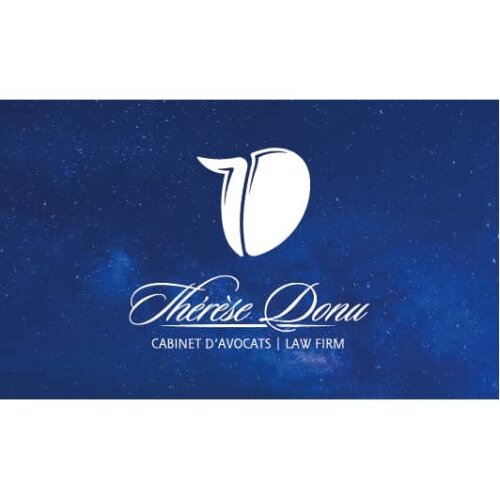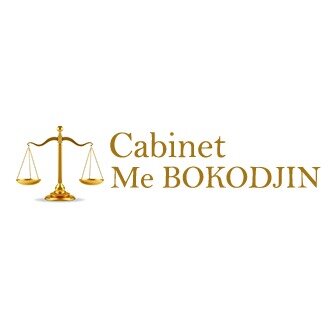Best Trusts Lawyers in Lomé
Share your needs with us, get contacted by law firms.
Free. Takes 2 min.
List of the best lawyers in Lomé, Togo
About Trusts Law in Lomé, Togo
The concept of trusts in Lomé, Togo, is traditionally influenced by both local customary laws and modern statutory influences. Trusts are legal arrangements where a person or entity, known as the trustee, holds and manages assets on behalf of beneficiaries. In Togo, trusts are often used for estate planning, protecting assets, or charitable purposes. While not as extensively regulated as in some jurisdictions, trusts in Lomé are governed by a blend of civil law principles, supplemented by international influences due to cross-border financial activities.
Why You May Need a Lawyer
Engaging a lawyer skilled in trust law is crucial for navigating the complexities involved. Situations necessitating legal assistance include estate planning, particularly in managing and planning the distribution of assets posthumously. A lawyer is equally indispensable when setting up a trust to ensure compliance with local and international standards. Additionally, individuals may require legal help in managing existing trusts, resolving disputes, or ensuring that the trust meets the required legal obligations in Togo.
Local Laws Overview
Togolese trust law is evolving, with influences from both French civil law and local customary practices. Key elements include:
- Formation of Trusts: Trusts must be established with clear intent and purposes, such as charitable, private, or for family benefits.
- Trustee Responsibilities: Trustees have a fiduciary duty to manage the trust's assets prudently and in the best interest of the beneficiaries.
- Regulation and Compliance: Depending on the trust's nature, certain financial regulations and reporting requirements may apply.
- Tax Considerations: There are specific tax implications that accompany the formation and operation of trusts, and legal advice is needed to navigate these effectively.
Frequently Asked Questions
What is a trust?
A trust is a legal arrangement where one party holds property or assets for the benefit of another, known as the beneficiary. It allows for the management and distribution of assets according to the trustor's wishes.
Why should I consider setting up a trust?
Trusts can offer numerous benefits, including asset protection, estate planning, tax savings, and ensuring a structured distribution of your assets.
Who can be a trustee?
A trustee can be an individual or a legal entity. It is crucial that the trustee is someone trustworthy and capable of managing the trust's assets responsibly.
Are there different types of trusts?
Yes, there are various types, including revocable and irrevocable trusts, living trusts, and testamentary trusts, each serving different purposes and offering different benefits.
What is the role of a beneficiary in a trust?
Beneficiaries are individuals or organizations entitled to receive benefits from the trust's assets. Their rights and interests in the trust are defined in the trust document.
Can I change the terms of my trust once it is established?
This largely depends on the type of trust. Revocable trusts offer more flexibility for amendments, while irrevocable trusts typically do not allow changes without legal proceedings.
Is it expensive to set up a trust in Lomé?
The costs vary depending on the complexity and type of trust. Consulting with a legal advisor can help you understand the associated fees and costs.
Do trusts have to be registered in Lomé?
Registration requirements can depend on the trust’s specifics. Some may need registration, particularly those with international elements or significant assets involved.
How are trusts taxed in Togo?
Trusts may be subject to specific tax regulations. It's important to seek advice to understand the potential tax obligations and benefits associated with trusts in Togo.
Can a trust own businesses or properties in Togo?
Yes, a trust can own businesses or properties, and it may be an effective way to manage these assets for continuity and organizational purposes.
Additional Resources
If you're seeking further information, consider reaching out to Togo’s Ministry of Justice or the National Bar Association for guidance. Consulting with local law firms specializing in estate planning and asset management can also be valuable. Educational resources such as textbooks and online platforms focusing on Togolese law can provide further insights into trust law.
Next Steps
If you need legal assistance with trusts, first gather all relevant documentation related to your assets and estate plans. Schedule consultations with legal advisors or law firms experienced in trust law. It can be helpful to prepare questions ahead of your meetings to ensure you cover all aspects of your needs. Remember, professional legal advice is crucial to navigate the complexities of trust law effectively and to ensure your interests are well-protected.
Lawzana helps you find the best lawyers and law firms in Lomé through a curated and pre-screened list of qualified legal professionals. Our platform offers rankings and detailed profiles of attorneys and law firms, allowing you to compare based on practice areas, including Trusts, experience, and client feedback.
Each profile includes a description of the firm's areas of practice, client reviews, team members and partners, year of establishment, spoken languages, office locations, contact information, social media presence, and any published articles or resources. Most firms on our platform speak English and are experienced in both local and international legal matters.
Get a quote from top-rated law firms in Lomé, Togo — quickly, securely, and without unnecessary hassle.
Disclaimer:
The information provided on this page is for general informational purposes only and does not constitute legal advice. While we strive to ensure the accuracy and relevance of the content, legal information may change over time, and interpretations of the law can vary. You should always consult with a qualified legal professional for advice specific to your situation.
We disclaim all liability for actions taken or not taken based on the content of this page. If you believe any information is incorrect or outdated, please contact us, and we will review and update it where appropriate.









